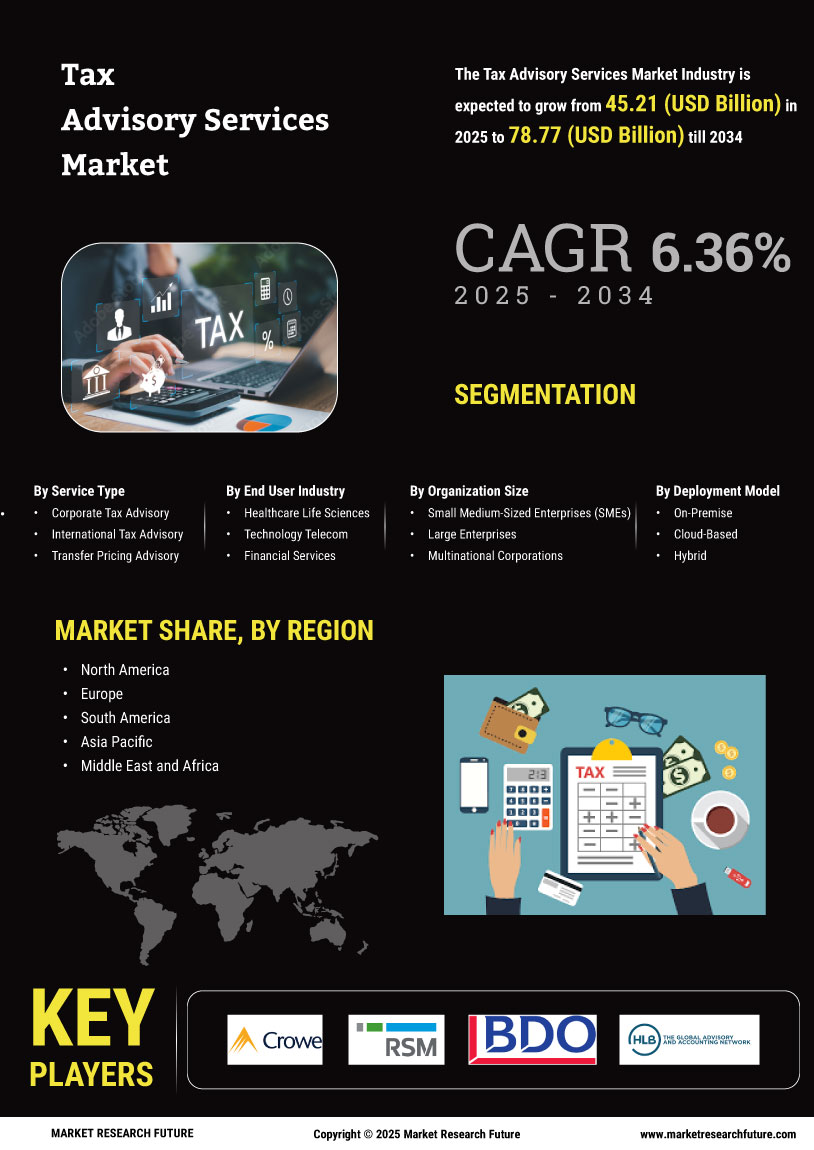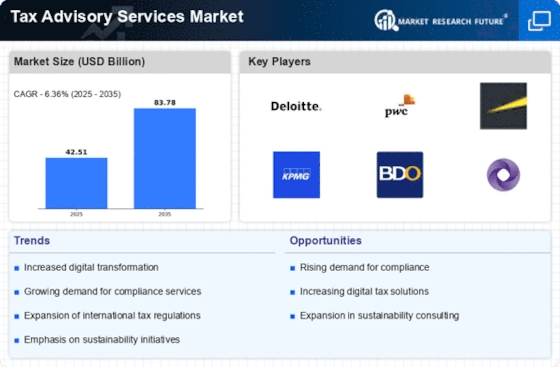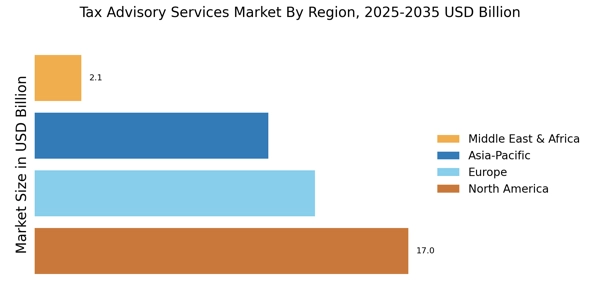Increased Focus on Tax Efficiency
The pursuit of tax efficiency is a significant driver in the Tax Advisory Services Market. Companies are increasingly aware of the impact that effective tax planning can have on their overall financial performance. As a result, there is a growing emphasis on strategies that minimize tax liabilities while ensuring compliance with regulations. Recent studies indicate that businesses that engage tax advisory services can achieve substantial savings, enhancing their competitive edge. This focus on tax efficiency is particularly pronounced among multinational corporations, which often face complex tax structures. By leveraging the expertise of tax advisors, these firms can navigate intricate tax landscapes, optimize their tax positions, and ultimately improve their bottom line. The trend towards tax efficiency is expected to persist, further fueling the demand for advisory services.
Emergence of Digital Tax Solutions
The emergence of digital tax solutions is reshaping the Tax Advisory Services Market. As technology continues to advance, tax advisory firms are increasingly adopting digital tools to enhance their service offerings. These solutions streamline processes, improve accuracy, and provide clients with real-time insights into their tax positions. The integration of artificial intelligence and data analytics into tax advisory services is becoming more prevalent, allowing firms to offer tailored solutions that meet the specific needs of their clients. This technological shift not only improves efficiency but also enhances the overall client experience. As businesses seek to leverage technology for better tax management, the demand for digital tax solutions is likely to grow, driving innovation within the tax advisory sector.
Growth of Cross-Border Transactions
The expansion of cross-border transactions significantly influences the Tax Advisory Services Market. As businesses increasingly operate on an international scale, they encounter diverse tax obligations across different jurisdictions. This trend has led to a growing need for tax advisory services that can provide insights into international tax laws and treaties. According to recent data, cross-border trade has seen a steady increase, with many companies seeking to optimize their tax positions globally. Tax advisors play a crucial role in helping businesses understand the implications of international tax regulations, thereby facilitating smoother operations and compliance. This growth in cross-border activities is likely to continue, further driving demand for specialized tax advisory services.
Rising Complexity of Tax Regulations
The increasing complexity of tax regulations is a primary driver in the Tax Advisory Services Market. As governments around the world implement more intricate tax laws, businesses face challenges in compliance. This complexity necessitates expert guidance, leading to a heightened demand for tax advisory services. In recent years, the number of tax regulations has surged, with many jurisdictions introducing new compliance requirements. For instance, the OECD's Base Erosion and Profit Shifting (BEPS) initiative has prompted countries to revise their tax codes, creating a need for specialized advisory services. Consequently, firms are increasingly seeking the expertise of tax advisors to navigate these evolving regulations, ensuring compliance and minimizing risks associated with non-compliance.
Rising Awareness of Tax Compliance Risks
The rising awareness of tax compliance risks is a crucial driver in the Tax Advisory Services Market. As businesses become more cognizant of the potential repercussions of non-compliance, there is an increasing demand for expert advisory services. Companies are recognizing that failure to adhere to tax regulations can result in severe penalties, reputational damage, and financial losses. Recent surveys indicate that a significant percentage of businesses are prioritizing compliance as a key component of their operational strategy. This heightened awareness is prompting firms to seek the assistance of tax advisors to mitigate risks and ensure adherence to evolving tax laws. As the landscape of tax compliance continues to change, the demand for advisory services is expected to rise, reflecting the growing importance of risk management in tax planning.

















